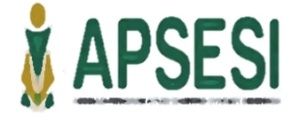Navigating Barriers and Empowering Women in Sharia MSMEs: A Qualitative Study on Entrepreneurial Housewives in Samarinda
Abstract
Women, particularly housewives, play an increasingly vital role in the development of Sharia-based micro, small, and medium enterprises (MSMEs). However, most existing studies focus on women’s entrepreneurship in general and seldom examine the specific barriers and empowerment experiences of housewives within the Sharia MSME context. This study aims to explore the challenges, empowerment strategies, and socio-religious dynamics experienced by entrepreneurial housewives in Samarinda. Using a qualitative literature review approach, this research synthesizes national and international studies published between 2000 and 2025. The analysis identifies four main dimensions shaping housewives’ participation in Sharia MSMEs: access to Islamic microfinance, digital literacy, social capital, and the internalization of Islamic ethical values in business practices. The findings show that while housewives hold a strategic role in fostering Sharia MSME growth, they face persistent constraints such as limited access to capital, low technological competence, and the double burden of domestic responsibilities. Nonetheless, religious motivation, community-based support systems, and Sharia-oriented social networks serve as strong empowerment enablers. The study concludes that sustainable empowerment of housewives in Sharia MSMEs requires integrative policies that enhance financial literacy, provide flexible Sharia-compliant microfinancing, and strengthen digital entrepreneurship training through community engagement. This research contributes new insights for policymakers, Islamic financial institutions, and women’s organizations aiming to promote inclusive, faith-based economic participation among housewives.
Keywords
Full Text:
PDFReferences
(KemenPPPA), K. P. P. dan P. A. (2023). Laporan Pemberdayaan Ekonomi Perempuan Indonesia 2023. KemenPPPA. https://kemenpppa.go.id
Abdurrahman, D., Widodo, T., & Suharto, R. (2021). Halal brand trust and consumer loyalty among Muslim women entrepreneurs in Indonesia. Journal of Islamic Marketing, 12(7), 1345–1362. https://doi.org/10.1108/JIMA-10-2020-0311
Adawiyah, W. R., & Pramono, R. (2021). Cultural barriers and women entrepreneurship in Indonesia: A gendered institutional perspective. Gender in Management: An International Journal, 36(5), 565–582. https://doi.org/10.1108/GM-07-2020-0227
Al-Dhaafri, H. S., & Alosani, M. S. (2020). Social capital, innovation capability and women entrepreneurship sustainability in Malaysia. Journal of Entrepreneurship in Emerging Economies, 12(5), 755–774. https://doi.org/10.1108/JEEE-04-2019-0064
Alonso-González, M. J., Muñoz-Fernández, G. A., & Santos, J. F. (2022). Women entrepreneurship and digital transformation after COVID-19: Challenges and opportunities. Technological Forecasting and Social Change, 180, 121690. https://doi.org/10.1016/j.techfore.2022.121690
Bakar, R., Alias, N., & Jais, I. R. M. (2022). Islamic microfinance and women entrepreneurship: Evidence from Brunei Darussalam. International Journal of Ethics and Systems, 38(3), 497–514. https://doi.org/10.1108/IJOES-05-2021-0114
Bisri, H., & Husni. (2020). Empowerment of Household Women through Sharia-Based Entrepreneurship Training in Banjar City, Indonesia. International Journal of Innovation, Creativity and Change, 13(5), 37–49. https://www.ijicc.net/images/vol_13/Iss_5/13508_Bisri_2020_E_R.pdf
Braun, V., & Clarke, V. (2012). Thematic analysis. In H. Cooper (Ed.), APA handbook of research methods in psychology (Vol. 2, pp. 57–71). American Psychological Association. https://doi.org/10.1037/13620-004
Creswell, J. W., & Poth, C. N. (2018). Qualitative Inquiry and Research Design: Choosing Among Five Approaches (4th ed.). SAGE Publications.
Fanaja, R. A., Saputri, M. E., & Pradana, M. (2023). Knowledge as a mediator for innovativeness and risk-taking tolerance of female entrepreneurs in Indonesia. Cogent Social Sciences.
Fauzia, A. (2023). Women, religion, and Islamic micro-entrepreneurship in Aceh: The role of local culture in shaping economic ethics. Indonesian Journal of Islam and Muslim Societies, 13(1), 65–90. https://doi.org/10.18326/ijims.v13i1.65-90
Hani, U., Rachmania, I. N., Setyaningsih, S., & Putri, R. C. (2012). Patterns of Indonesian women entrepreneurship. Procedia Economics and Finance, 4, 274–285. https://doi.org/10.1016/S2212-5671(12)00342-5
Hassan, M. K., & Hippler, W. J. (2019). Faith-based entrepreneurship: Evidence from Islamic finance. Global Finance Journal, 42, 100445. https://doi.org/10.1016/j.gfj.2018.07.002
Hendratmi, A., Agustina, T. S., Sukmaningrum, P. S., & Widayanti, M. A. (2022). Livelihood strategies of women entrepreneurs in Indonesia. Heliyon, 8(9), e10520. https://doi.org/10.1016/j.heliyon.2022.e10520
Huda, M., Rahman, S. F., & Nurlina, L. (2023). Islamic fintech and women’s empowerment: A study of sharia crowdfunding adoption in Indonesia. Heliyon, 9(5), e15942. https://doi.org/10.1016/j.heliyon.2023.e15942
Kindon, S., Pain, R., & Kesby, M. (2022). Participatory action research approaches and methods: Connecting people, participation and place. Routledge.
Maldonado-Castro, J. (2024). Mapping the intellectual structure of microfinance and its influence on women entrepreneurs. [ScienceDirect Journal].
Mayasari, M., Syuhada, S., & Muslim, F. (2024). Empowering women entrepreneurs in Jambi’s informal sector: A cultural and sustainable livelihood framework approach. International Journal of Islamic Business and Economics (IJIBEC), 8(2), 257–268. https://doi.org/10.28918/ijibec.v8i2.8891
Osman, I., Zainudin, A., & Ahmad, M. (2020). Sharia-compliant entrepreneurship and socio-economic empowerment among Malaysian women micro-entrepreneurs. Journal of Enterprising Communities, 14(4), 621–640. https://doi.org/10.1108/JEC-02-2020-0017
Putnam, R. D. (2000). Bowling alone: The collapse and revival of American community. Simon & Schuster.
Rahayu, N. S. (2020). The Intersection of Islamic Microfinance and Women’s Empowerment: A Case Study of Baitul Maal Wat Tamwil in Indonesia. International Journal of Financial Studies, 8(2), 37. https://doi.org/10.3390/ijfs8020037
Rahayu, N. S., Masduki, & Nur Ellyanawati, E. R. (2023). Women entrepreneurs’ struggles during the COVID-19 pandemic and their use of social media. Journal of Innovation and Entrepreneurship, 12, 51. https://innovation-entrepreneurship.springeropen.com/articles/10.1186/s13731-023-00322-y
Rahmadana, M., Ridwan, & Alisalman, M. (2023). Analisis pemberdayaan perempuan berbasis UMKM dalam meningkatkan minat usaha keluarga oleh komunitas Mom Preneurs di Kota Samarinda. Learning Society: Jurnal CSR, Pendidikan Dan Pemberdayaan Masyarakat, 4(2). https://doi.org/10.30872/ls.v4i2.3494
Rahmawati, D., & Pratama, R. A. (2021). Women empowerment through sharia microfinance institutions in Indonesia. Journal of Islamic Marketing, 12(9), 1681–1700. https://doi.org/10.1108/JIMA-08-2020-0247
Rozalinda. (2024). Economic empowerment of unbanked women through sharia financial inclusion. Cogent Social Sciences.
Setyaningrum, R. P., Norisanti, F., Fahlevi, M., Aljuaid, M., & Grabowska, S. (2023). Women and entrepreneurship for economic growth in Indonesia. Frontiers in Psychology, 13, 975709. https://doi.org/10.3389/fpsyg.2022.975709
Susanti, E. (2023). MSMEs performance and competitive advantage: digital transformation and innovation in women-owned MSMEs. Cogent Business & Management.
Tambunan, T. T. H. (2020). The development of small and medium enterprises in Indonesia after the Asian Financial Crisis. Journal of Southeast Asian Economies, 37(2), 169–190. https://doi.org/10.1355/ae37-2c
Widiyanto, I., Setiawan, R., & Hidayat, F. (2023). Digital entrepreneurship training and empowerment of women MSMEs in Indonesia. International Journal of Emerging Markets, 18(5), 987–1002. https://doi.org/10.1108/IJOEM-07-2022-1163
Yuliani, E., Rahmadani, A., & Wulandari, S. (2024). Digital literacy and sharia microfinance for empowering women-led MSMEs in Indonesia. Asian Economic and Financial Review, 14(2), 225–240. https://doi.org/10.55493/5002.v14i2.4829
DOI: http://dx.doi.org/10.30984/tjebi.v10i2.3841
Article Metrics
Abstract view : 92 timesPDF - 48 times
Refbacks
- There are currently no refbacks.
Copyright (c) 2025 Purnama Sari Sari
License URL: https://creativecommons.org/licenses/by-nc/4.0/
Tasharruf: Journal Economics and Business of Islam is indexed by:
 |
 |
 |
 |
 |
|
 |
 |

This work is licensed under a Creative Commons Attribution-NonCommercial 4.0 International License.
________________________________________________________
Tasharruf: Journal Economics and Bussiness of Islam is published by Fakultas Ekonomi dan Bisnis Islam, Institut Agama Islam Negeri (IAIN) Manado
Jl. Dr. S. H. Sarundajang Kawasan Ring Road I Malendeng Manado, Sulawesi Utara, Indonesia 95128
Email: [email protected]
ISSN Print: 2528-0317 ISSN Online: 2528-0325












1.png)


